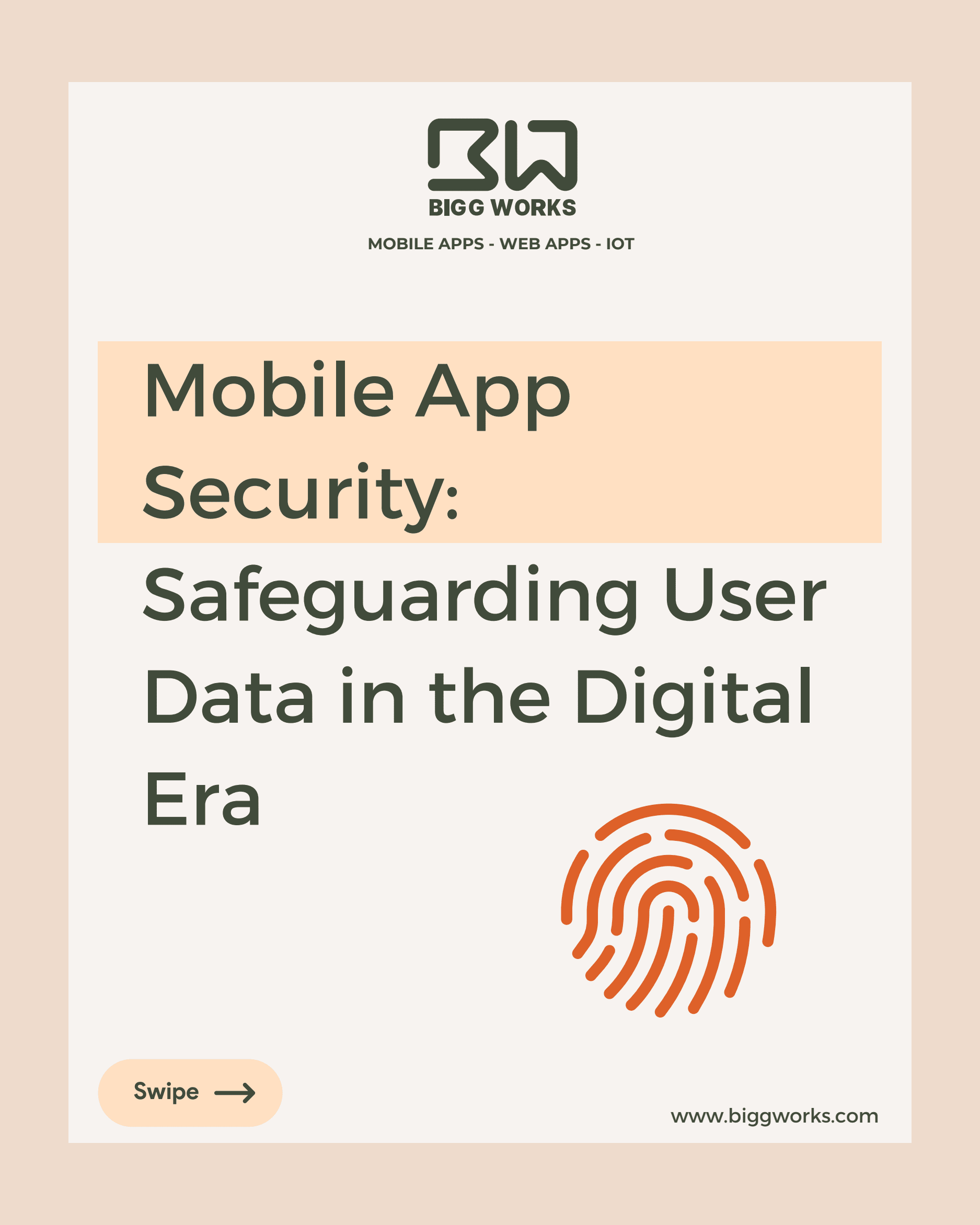Mobile App Security: Safeguarding User Data in the Digital Era

In today's digital landscape, mobile app security is paramount. Protecting user data has become an essential responsibility for developers and organizations alike. This article delves into the significance of mobile app security, common vulnerabilities, and best practices to ensure the safety of user information.
As mobile devices play an increasingly central role in our lives, the data they hold becomes a prime target for cybercriminals. From personal information to financial details, user data is vulnerable to theft, misuse, and breaches. This reality underscores the need for robust mobile app security measures to maintain user trust and protect sensitive information.
Inadequate Authentication:Weak or nonexistent authentication methods can allow unauthorized access to user accounts.
Insecure APIs:Insecure application programming interfaces (APIs) can lead to data leaks and breaches.
Poor Code Quality:Flaws in the app's code can create vulnerabilities that attackers can exploit.
Lack of Updates:Failing to update apps regularly leaves them exposed to known vulnerabilities.
Data Encryption:Encrypt user data both in transit and at rest to thwart unauthorized access.
Strong Authentication:Implement multi-factor authentication to ensure secure user access.
Secure APIs:Regularly audit and secure APIs to prevent data leakage.
Code Review:Conduct regular code reviews to identify and address security vulnerabilities.
Regular Updates:Keep apps up to date with security patches and bug fixes to fend off potential threats.
User Privacy:Clearly communicate data collection and usage policies to users, obtaining their informed consent.
Testing and Monitoring:Regularly test apps for vulnerabilities and employ continuous monitoring for unusual activities.
While stringent security measures are essential, they shouldn't compromise user experience. Striking a balance between safeguarding data and delivering seamless interactions is crucial. A secure app inspires user confidence, fostering long-term engagement and loyalty.
Mobile app security is a collective responsibility that involves developers, organizations, and users. Developers must adopt security-by-design principles and stay updated on emerging threats. Organizations should invest in security infrastructure and prioritize user privacy. Users, on their part, must exercise caution when granting app permissions and keep their devices updated.
In the digital age, mobile app security is non-negotiable. As technology evolves, so do the tactics of cybercriminals. By following best practices, implementing robust security measures, and fostering a culture of security awareness, we can collectively ensure that user data remains protected in the ever-expanding digital landscape.
#MobileAppDevelopment #AppDevelopment #NativeApps #CrossPlatformApps #iOSApps #AndroidApps #PWAs #ReactNative #Flutter #Xamarin #MobileTech #CodeEfficiency #UserExperience #AppSolutions #TechInnovation #UIUXDesign #DigitalExperiences #HybridApps #MobileDev #AppProgramming